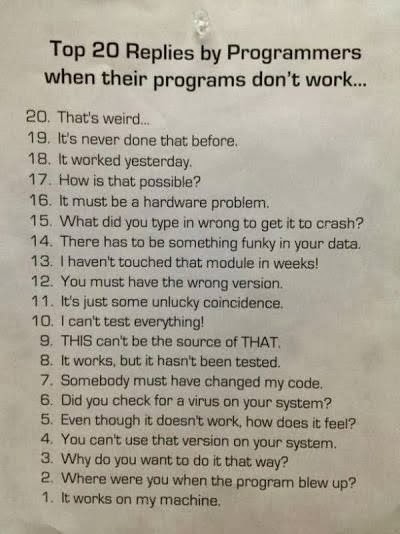Eric S. Raymond has been asked to write this document for years, and he’s finally given in to the demand:
What Is Hacking?
The “hacking” we’ll be talking about in this document is exploratory programming in an open-source environment. If you think “hacking” has anything to do with computer crime or security breaking and came here to learn that, you can go away now. There’s nothing for you here.
Hacking is a style of programming, and following the recommendations in this document can be an effective way to acquire general-purpose programming skills. This path is not guaranteed to work for everybody; it appears to work best for those who start with an above-average talent for programming and a fair degree of mental flexibility. People who successfully learn this style tend to become generalists with skills that are not strongly tied to a particular application domain or language.
Note that one can be doing hacking without being a hacker. “Hacking”, broadly speaking, is a description of a method and style; “hacker” implies that you hack, and are also attached to a particular culture or historical tradition that uses this method. Properly, “hacker” is an honorific bestowed by other hackers.
Hacking doesn’t have enough formal apparatus to be a full-fledged methodology in the way the term is used in software engineering, but it does have some characteristics that tend to set it apart from other styles of programming.
- Hacking is done on open source. Today, hacking skills are the individual micro-level of what is called “open source development” at the social macrolevel. A programmer working in the hacking style expects and readily uses peer review of source code by others to supplement and amplify his or her individual ability.
- Hacking is lightweight and exploratory. Rigid procedures and elaborate a-priori specifications have no place in hacking; instead, the tendency is try-it-and-find-out with a rapid release tempo.
- Hacking places a high value on modularity and reuse. In the hacking style, you try hard never to write a piece of code that can only be used once. You bias towards making general tools or libraries that can be specialized into what you want by freezing some arguments/variables or supplying a context.
- Hacking favors scrap-and-rebuild over patch-and-extend. An essential part of hacking is ruthlessly throwing away code that has become overcomplicated or crufty, no matter how much time you have invested in it.
The hacking style has been closely associated with the technical tradition of the Unix operating system.
Recently it has become evident that hacking blends well with the “agile programming” style. Agile techniques such as pair programming and feature stories adapt readily to hacking and vice-versa. In part this is because the early thought leaders of agile were influenced by the open source community. But there has since been traffic in the other direction as well, with open-source projects increasingly adopting techniques such as test-driven development.


 I actually chuckled when I read rumor that the few anti-open-source advocates still standing were crowing about the Heartbleed bug, because I’ve seen this movie before after every serious security flap in an open-source tool. The script, which includes a bunch of people indignantly exclaiming that many-eyeballs is useless because bug X lurked in a dusty corner for Y months, is so predictable that I can anticipate a lot of the lines.
I actually chuckled when I read rumor that the few anti-open-source advocates still standing were crowing about the Heartbleed bug, because I’ve seen this movie before after every serious security flap in an open-source tool. The script, which includes a bunch of people indignantly exclaiming that many-eyeballs is useless because bug X lurked in a dusty corner for Y months, is so predictable that I can anticipate a lot of the lines.


